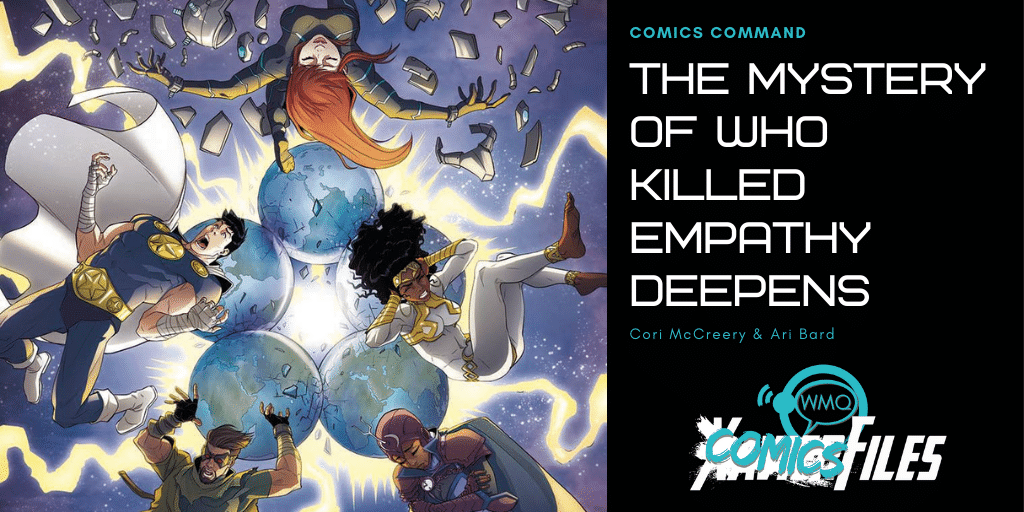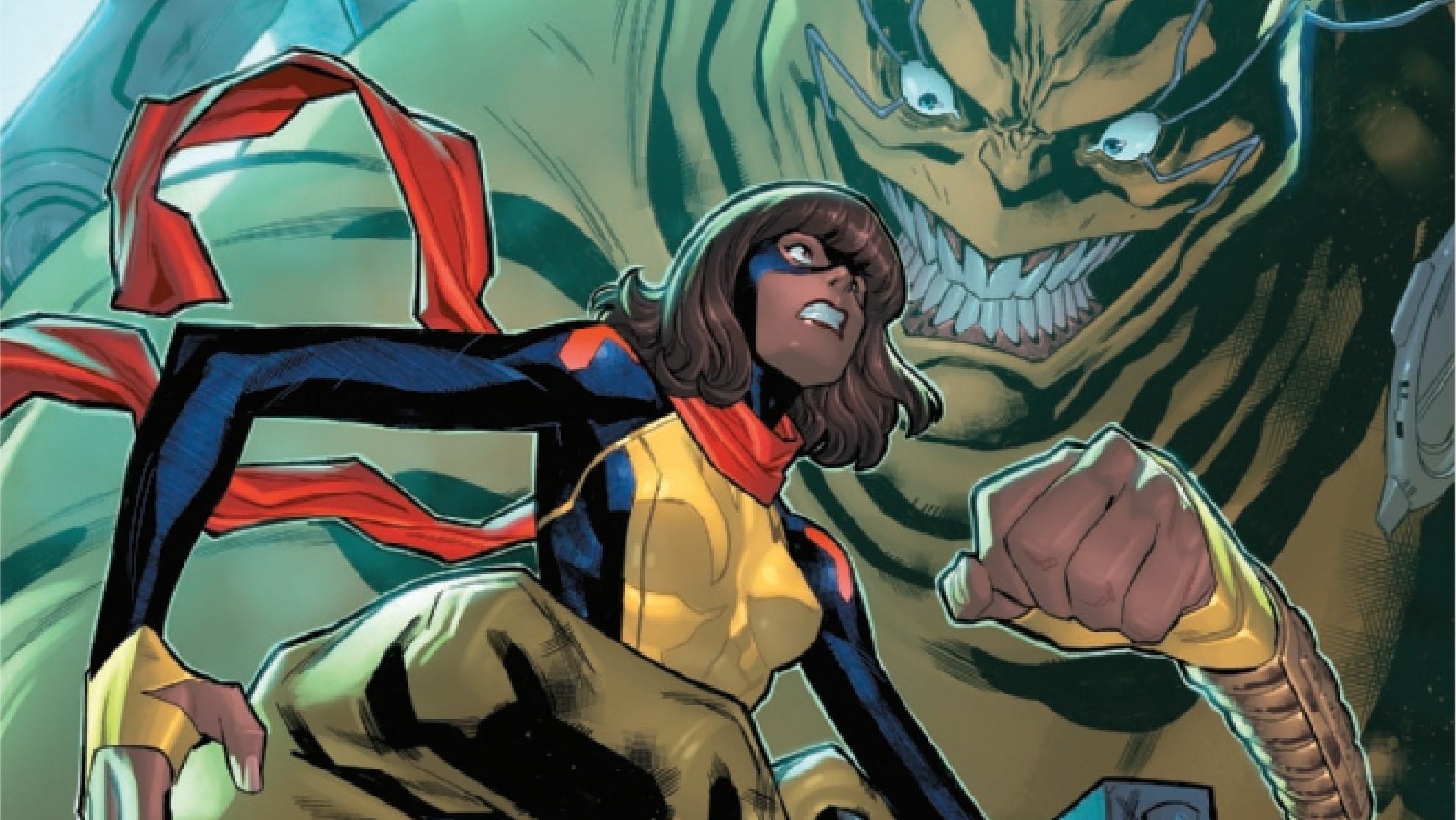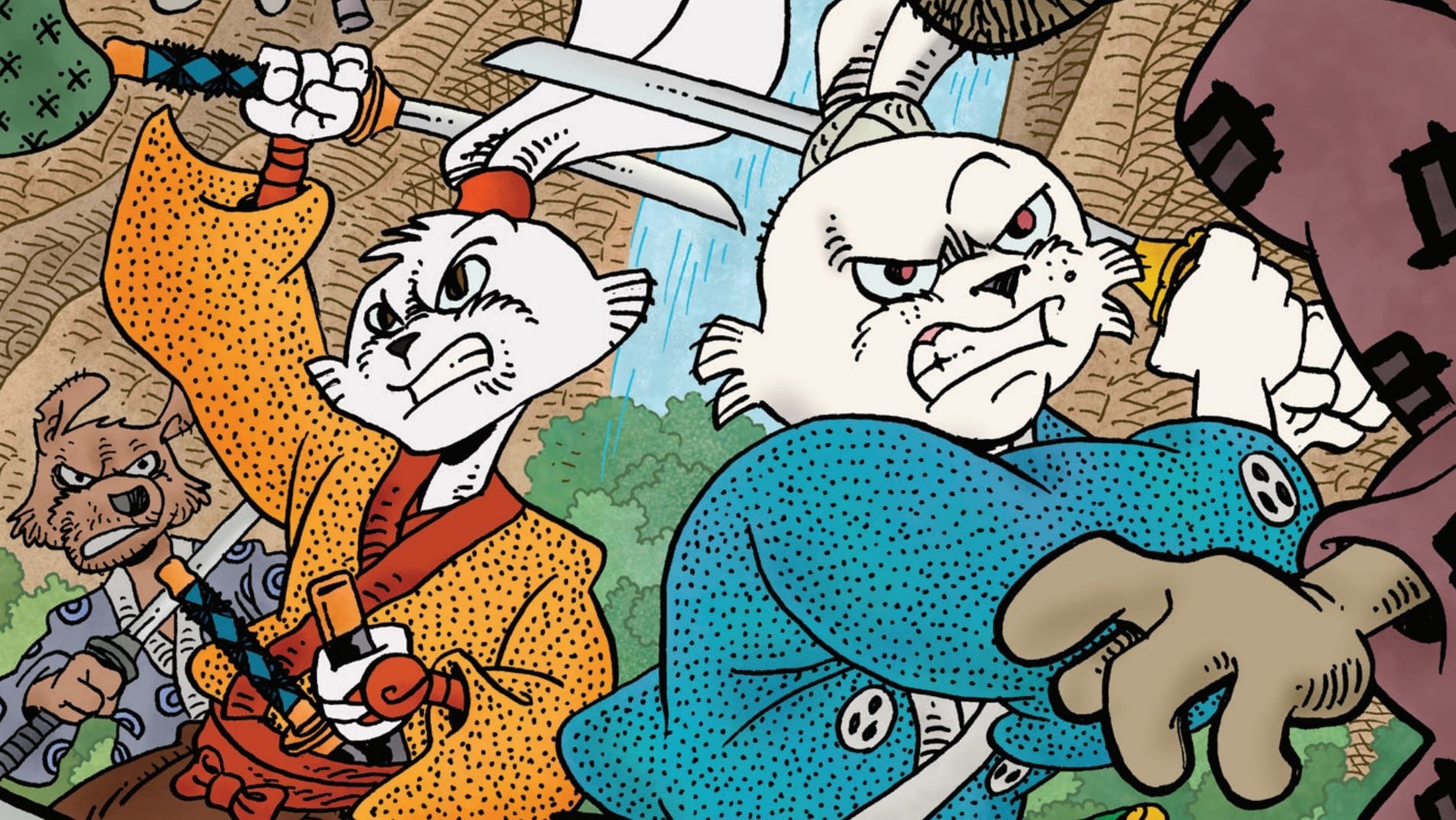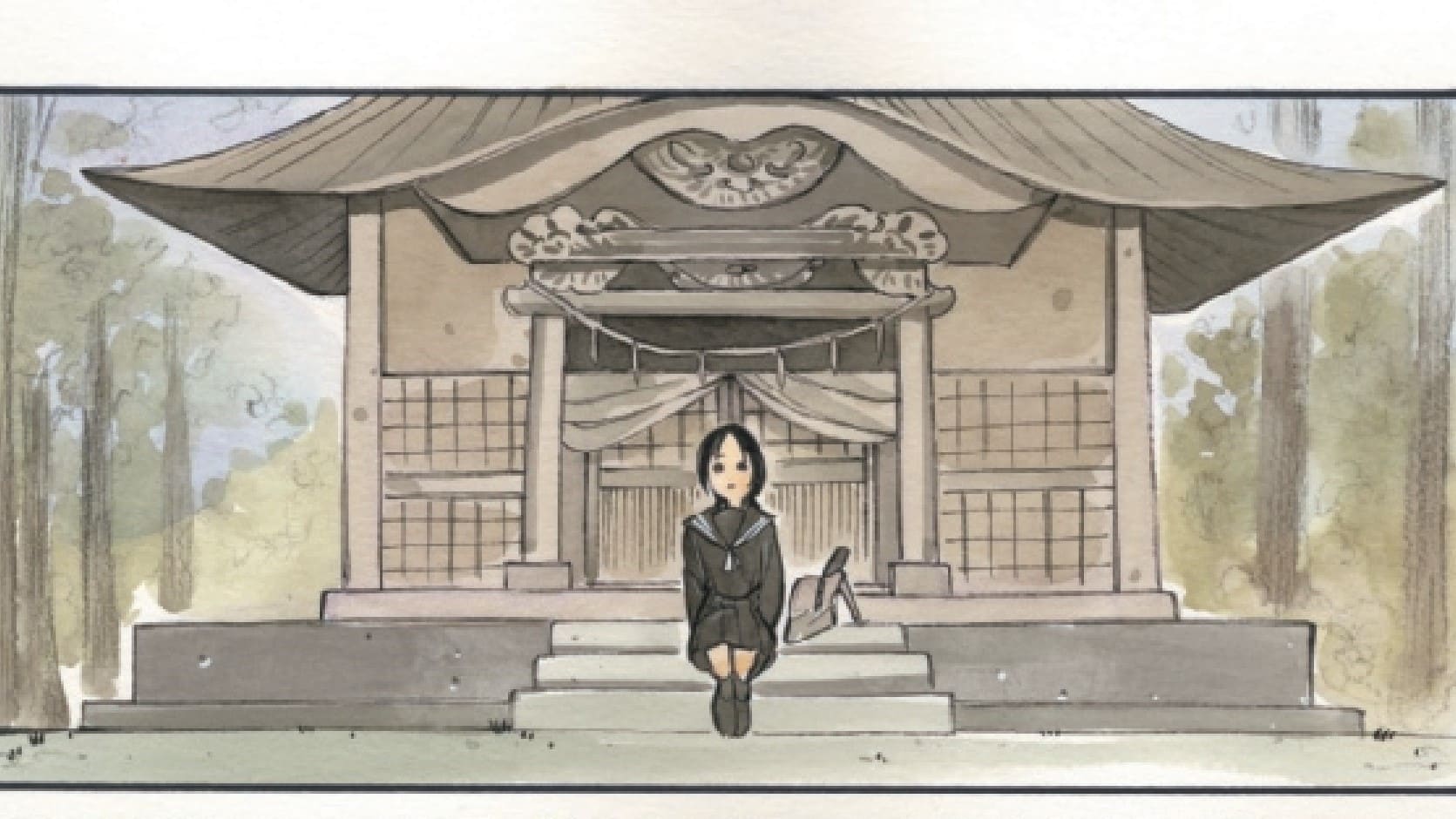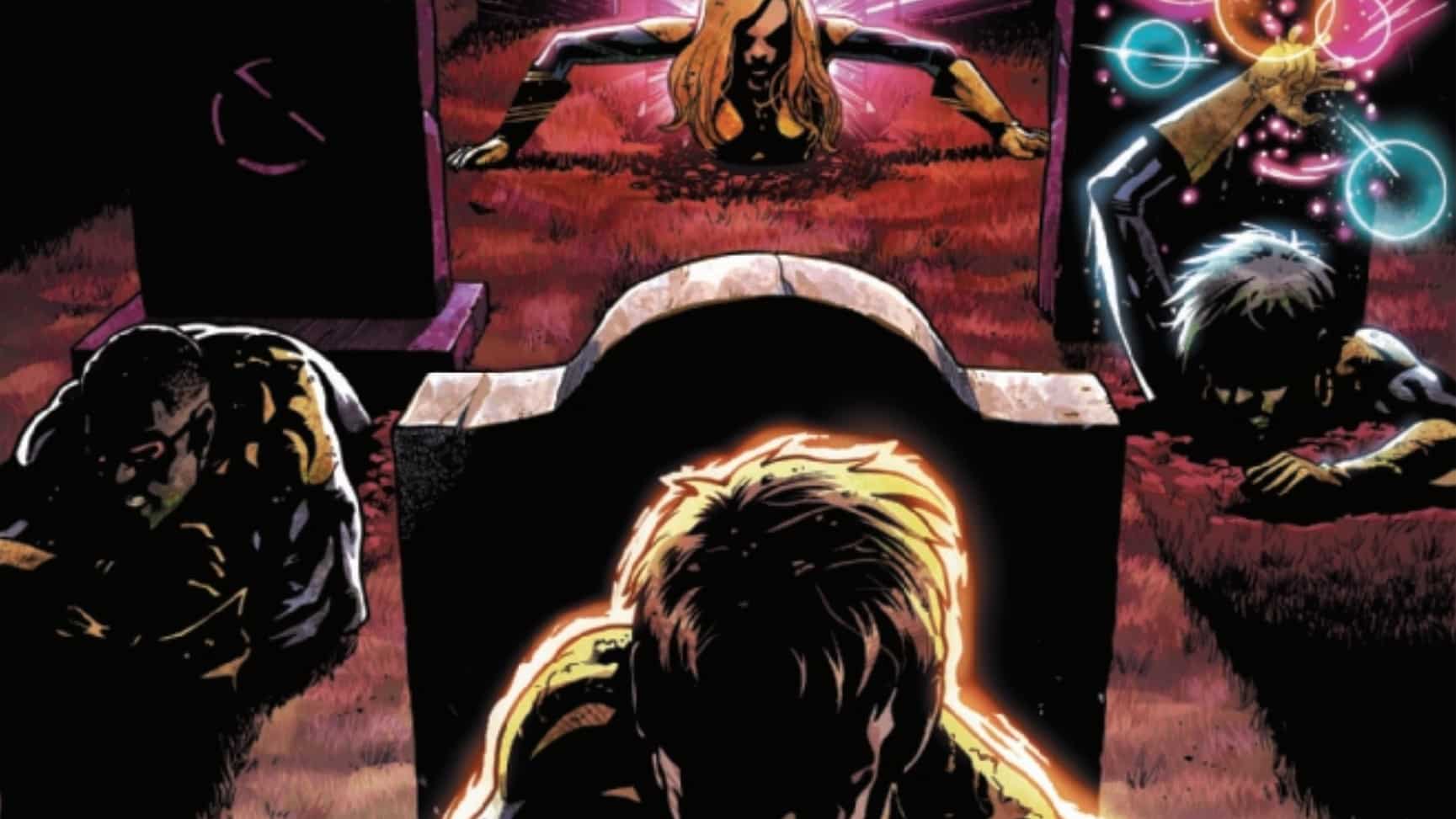The Crisis Command, last survivors of the multiverse, are faced with an impossible task: avenging the death…of an idea! DOA is empathy itself, and while empathy withers and dies across the world, Originator uses her abilities to bring the John Doe back for 24 hours to reveal the name of his killer. It’s Image’s “Commanders in Crisis” #2 by Steve Orlando and Davide Tinto.
Cori McCreery: Hey Ari! What a month it’s been, huh? I was so busy it just kinda blazed by for me, and suddenly it’s time for the second issue of Commanders in Crisis already.
Ari Bard: Yeah! It’s hard to believe we’re back already, and yet at the same time, so much has happened. Kinda like in this issue! Let’s dive in.

Once More unto the Cosmic Breach
CM: So as the story opens, we get a little bit more of the origins of our heroes, and find out that none of them had actually had super powers on their own Earths. This makes a bit more sense to me than them both being minority trailblazers and superbeings. How’d you feel about this opening revelation?
AB: I liked it and thought it made a lot of sense. I especially like that the more revealed origins help Orlando really lean into the idea of the multiverse as a living, breathing organism. When these universes die, it’s because they’ve become toxic and have mutated and become malignant, sort of like a cancer, and it seems to spread across different universes as the multiverse tries to fight it off. It’s a very fresh and organic way of looking at things through the familiar lens of superheroes, don’t you think?
CM: Specifically it seems as though the heroes are becoming the multiverse’s equivalent of antibodies. The Multiverse is using the disease that it’s fighting to create stronger ways of fighting it. Seems kinda potent, especially this year. What I wouldn’t give for antibodies with an ass like Prizefighter’s to take out the ‘rona.
AB: You can say that again. The attractiveness of these politicians might be the most unrealistic thing about this book. and that’s saying something. Orlando has definitely created a book that speaks to a number of items that are extremely relevant this year, while still keeping the book light and fun. Tonally, it’s the most balanced book I’ve read in a long time.
We Don’t Answer to a Flag

CM: Our first conflict of the issue comes with the bonus of seeing our leader Nina Next in action. She and Sawbones team up to assist in a crisis, before getting into a spat with local authorities. It certainly seems like some big trouble is brewing politically, and that that’s just going to fuel public sentiment about superheroes, huh?
AB: Definitely! Now, I don’t think we know if other superheroes exist in this universe besides our commanders in chief, but it’s clear that their altruism isn’t reciprocated by everyone. Not only that, but even though Sawbones says it’s the National Guard giving them trouble, the soldiers aren’t wearing any recognizable uniforms, and some have a very mysterious tattoo on their necks. Combine that with a mysterious figure scratching their genitals at the end of the scene, and I think we have something nefarious afoot. What do you think?
CM: For sure. So I went back to check on something, and that same symbol is on the ID of the creepy dude outside the morgue from issue #1. It has to be connected to the goings-on in the government, but it certainly reminds me of various paramilitary groups who freely offer their services to “keep the peace” in times of civil unrest. I’d also like to know more about our antagonist Congressman Next. What exactly is his relationship to Nina?
AB: I’m not sure. I’m thinking it might be her brother, but it’s very interesting to see them as leaders of what appears to be opposite sides of the debate over individualism vs. collectivism. I could definitely see the fate of the world coming down to *barfs* Congress and this bill, and I could see this mysterious organization as a tool to sow unrest and individuality within the public.
Did You Find the Word?

CM: The other big plot thread of the book revolves around the mystery last issue left off with. Who killed empathy? Originator spends the issue trying to figure out the word to bring him back, while Seer tries to use her power to track down his murderer at the same time. The latter leads us to a very touching moment that shows us the power of these heroes isn’t in their abilities.
AB: Exactly. Orlando did an excellent job crafting these characters and powers so there is never a doubt that these heroes are more than just their abilities. They have what it takes to lead, save the day and get to the answer without always having to use their powers because some of them have powers that are very situational or costly. They may have a universe-endangering mystery to solve, but Seer still takes the time to help out the everyday citizen, and that simply isn’t something you see in a traditional “Crisis”-style event. There’s so much to enjoy here, whether it be the quieter moments, the honest arguments like between Nina and Sumaira, or how the heroes sometimes feel as stumped as we are when it comes to the mystery of this crisis and of empathy.
CM: Yeah, it’s definitely telling that the heroes in this series feel much more heroic than some more established heroes at the Big Two have in recent years. And to reward her for using her power to selflessly help others instead of pursuing her mission, it looks like Seer will get some intel from them. But that will have to wait until next issue, as will whatever empathy has to reveal since Originator’s word seems to have done the trick.
AB: Indeed. I, for one, can’t help but wonder what empathy is like, and how he came to have the vocabulary of a sailor (although I suppose I might too if I came back to life).
Originator’s vocab list
- Chronodilativepsychodeevolution
- Feminoveloinspirationism
- Ideacorporevivexposition

